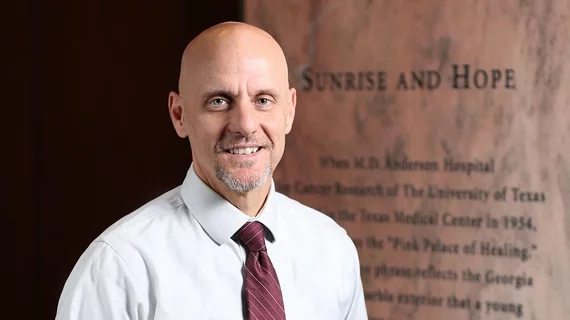Trump administration selects radiation oncologist as new FDA chief
The White House announced on Friday, Nov. 1, that it’s nominating Stephen Hahn, MD, a trained radiation oncologist, as the next commissioner of the Food and Drug Administration.
Hahn has served as chief medical executive of the University of Texas MD Anderson Cancer Center since last year, and also teaches at the school.
Radiology industry stakeholders—including the American Society for Radiation Oncology (ASTRO)—praised the appointment, urging the Senate to act swiftly in confirming him.
"Dr. Hahn is a brilliant physician leader with the highest levels of integrity and problem-solving talent. With a background in radiation oncology and medical oncology, he is uniquely positioned to advance the crucial work of the FDA,” Ronald Ennis, MD, chair of ASTRO’s Government Relations Council and an associate professor of radiation oncology for the Icahn School of Medicine at Mount Sinai, said in a statement.
Hahn specializes in treating lung cancer and sarcoma and has authored more than 200 peer-reviewed articles. Board certified in both medical and radiation oncology, he previously taught at the University of Pennsylvania for almost a decade.
Reports first indicated that Hahn was a top candidate for the job back in September. If confirmed, he would succeed former FDA Commissioner Scott Gottlieb, MD, who resigned from the position in March. Norman Sharpless, MD, has served as the FDA’s acting commissioner since that time.

